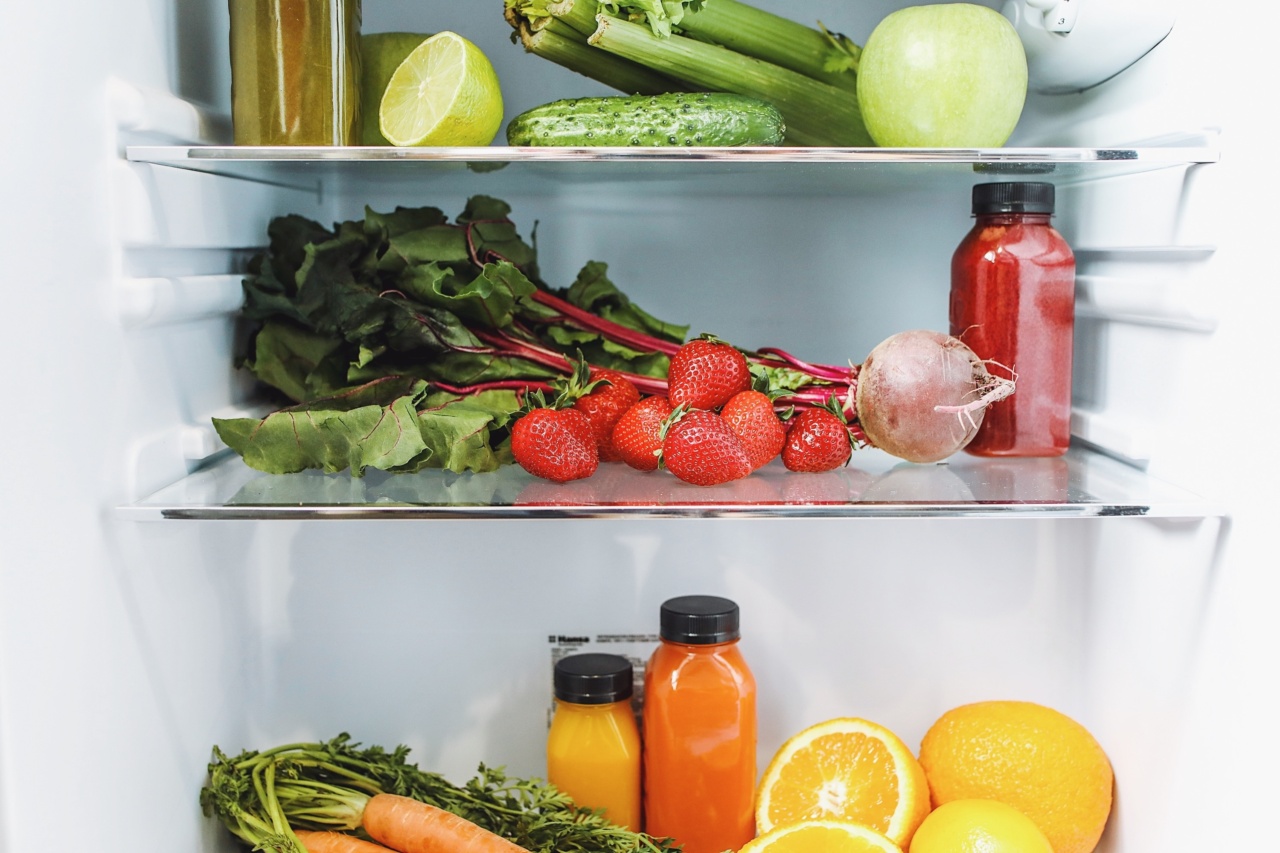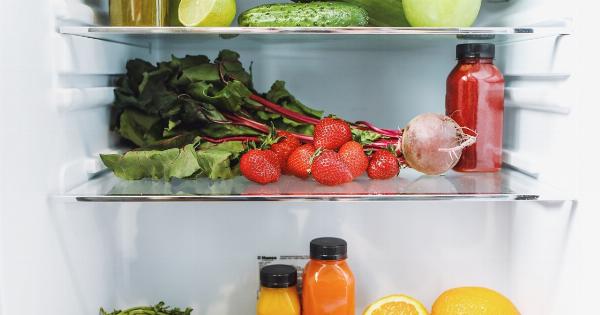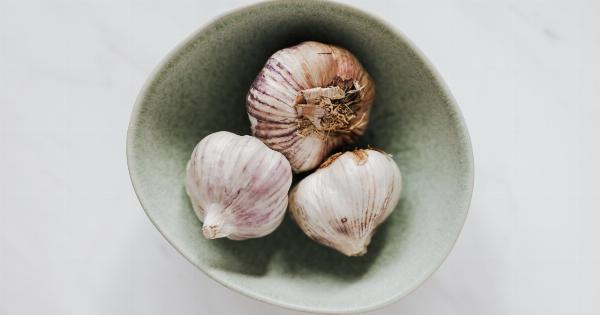Refrigeration is an essential part of food preservation, helping to extend the shelf life of various fruits and vegetables. However, not all produce thrives in the cold environment of the refrigerator.
In fact, refrigerating certain fruits and vegetables can negatively impact their taste, texture, and overall quality. To ensure that your produce stays fresh and maintains its optimal taste, it is crucial to know which fruits and vegetables should be kept out of the refrigerator. Here are ten common examples:.
1. Bananas
Bananas are one of the most popular fruits worldwide. Their vibrant yellow color, natural sweetness, and perfect portable size make them a favorite snack for many. However, refrigerating bananas is not recommended.
Cold temperatures can disrupt the ripening process and cause the peel to darken too quickly. Instead, it is best to store bananas at room temperature until they reach the desired ripeness, after which they can be consumed or moved to the fridge to prolong their shelf life.
2. Avocados
Avocados are creamy, nutritious, and incredibly versatile. While many people assume that refrigerating avocados is the way to go, this isn’t entirely accurate. Unripe avocados should be stored at room temperature to allow them to ripen properly.
Once they become ripe, they can be transferred to the refrigerator to slow down the ripening process and extend their freshness. However, if you refrigerate unripe avocados, they may never fully ripen and may instead become hard and unappetizing.
3. Tomatoes
Tomatoes are juicy, flavorful, and a staple ingredient in various dishes. Surprisingly, storing tomatoes in the refrigerator can negatively impact their taste and texture.
Cold temperatures can disrupt the internal structure of tomatoes, causing them to become mealy and lose their natural sweetness. It is best to keep tomatoes at room temperature, away from direct sunlight, to maintain their optimal flavor and texture.
4. Potatoes
Potatoes are a versatile and widely used vegetable that can be prepared in numerous ways. While refrigerating potatoes may seem like a logical choice, it is not recommended.
Cold temperatures can convert the starches in potatoes into sugars more quickly, resulting in a change in taste and texture. To prolong the shelf life of potatoes, store them in a dry, cool, and dark location, such as a pantry or cellar.
5. Onions
Onions add depth and flavor to countless dishes and are a staple in many kitchens. However, refrigerating onions can alter their texture and flavor, making them softer and more prone to mold or sprouting.
Instead, it is best to store onions in a cool, dry, and well-ventilated area, such as a pantry. Avoid storing onions near potatoes, as the moisture and gases emitted by potatoes can accelerate the spoiling process of onions.
6. Garlic
Garlic is known for its pungent taste and health benefits. While garlic bulbs may look beautiful when displayed in a hanging basket in the kitchen, refrigerating them is not ideal.
The cold temperatures can cause the cloves to become rubbery and even develop mold. It is recommended to store garlic bulbs in a cool and dry place with good airflow, such as a pantry or kitchen cabinet.
7. Winter Squash
Winter squashes, such as butternut squash and acorn squash, are hearty and flavorful vegetables commonly enjoyed during the colder months.
Unlike summer squashes, winter squashes have a thicker skin and can be stored at room temperature for weeks or even months. Refrigeration can cause their skin to become soft and deteriorate, shortening their shelf life. Ensure your winter squashes are stored in a cool and dry area, away from direct sunlight.
8. Stone Fruits (Peaches, Plums, Nectarines)
Stone fruits, including peaches, plums, and nectarines, offer a burst of juicy and sweet delight during the summer season. However, refrigerating these fruits can lead to a loss of their characteristic flavor and texture.
The cold temperatures can dull their natural sugars and make the flesh mealy. For peak flavor and juiciness, it is best to keep stone fruits at room temperature until they are fully ripe.
9. Citrus Fruits (Oranges, Grapefruits, Lemons)
Citrus fruits, such as oranges, grapefruits, and lemons, are packed with vitamin C and bring a refreshing zest to a variety of dishes and beverages.
While these vibrant fruits can survive in the refrigerator, they tend to lose their juiciness and become dry over time. To enjoy the full flavor and juiciness, it is recommended to store citrus fruits at room temperature and consume them within a week or two.
10. Berries (Strawberries, Blueberries, Raspberries)
Berries are small, vibrant fruits that are rich in antioxidants and bursting with flavor. However, refrigeration can make berries lose their firmness and become mushy quickly. Moisture can also cause them to spoil faster.
It is best to store berries unwashed in the refrigerator if you plan to consume them within a day or two. For longer storage, freezing berries is a more suitable option.
By knowing which fruits and vegetables to avoid refrigerating, you can maximize their freshness, taste, and overall quality.
Keeping these items at room temperature or in suitable storage conditions will ensure that your produce remains at its best until you are ready to enjoy it.




























